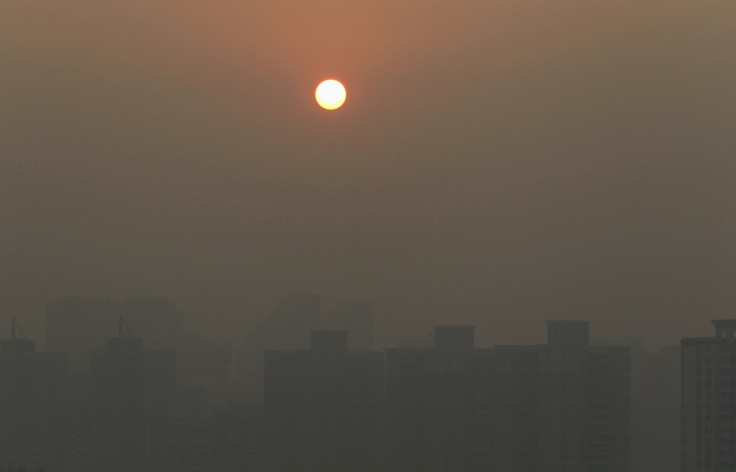China Censors US Pollution Data During APEC Meeting In Beijing

As world leaders, including U.S. President Barack Obama, touch down in Beijing for the Asia-Pacific Economic Cooperation summit, China’s skies turned “APEC Blue” -- a moniker coined on social media by Beijing residents, who noted how the government scrambled to clean up the city's famous smog ahead of the high-profile meeting by temporarily reducing traffic and shuttering nearby factories. For the many who keep track of local air quality on their phones, however, data for the pollution levels are still a little fuzzy.
According to the Wall Street Journal, air quality monitoring apps that use data from the Chinese government and U.S. Embassies and Consulates to find an average have been censored. Citing the Washington Post, the Beijing-based company Fresh-Ideas Studio, the maker of the popular app China Air Quality Index, said that the U.S. data were being withheld after receiving requests from the government.
“We received a notice from relevant Beijing government authorities saying it was not permitted to include air quality data from the U.S. Embassy,” a Fresh-Ideas representative told the Wall Street Journal, adding that the new self-censorship measure took effect on Monday at around noon.
A data comparison between state measurements and U.S. measurements appears show a discrepancy over how good the quality of the air is in Beijing. On Monday evening, readings from the U.S. embassy were at 180, a pollution level that is categorized as “unhealthy.” According to China’s government data during the same time, air quality in the city was 96, or “good” quality.
The Wall Street Journal noted that while the there is a significant discrepancy between the numbers, that doesn’t necessarily reflect incorrect pollution levels, but rather a difference in thresholds for the scales used. However, in general, U.S. embassy data is used as the standard for the most accurate air quality readings.
© Copyright IBTimes 2024. All rights reserved.





















